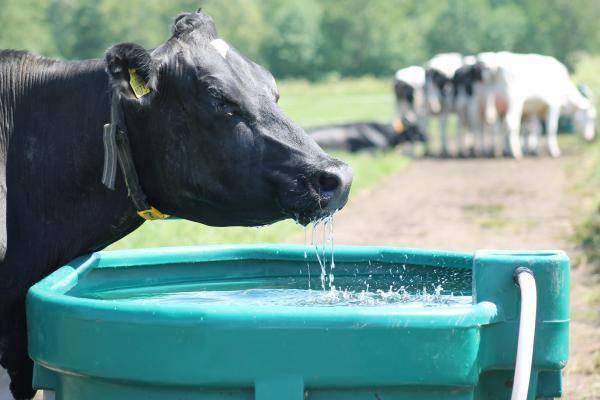Summer is just around the corner. With summer come higher temperatures, which can quickly lead to heat stress in ruminants. When the mercury reaches 18 degrees it is already time to take measures.
With beef and dairy cattle, heat stress results first of all in a reduced feed intake, an increased risk of rumen acidification and a drop in milk production. But it can also cause problems in getting cows into pregnancy, an increased somatic cell count and claw problems (as a result of rumen acidification). Research by the University of Florida shows that heat stress during dry periods results in the calves of these cows lagging behind. The birth weight of these calves can be as much as 8 kg lower, but their resistance in the first months of life is also lower.
Good ventilation, sufficient cool drinking water and feeding at the cooler times of the day make an important contribution to reducing problems. Good quality roughage is a must. Animals also benefit from feed with a low content of fermentable organic matter and an increased nutrient density (extra resistant starch and the use of rumen-resistant fats), in order to keep internal heat production low.
Due to a decrease in buffering capacity and a decrease in roughage intake, heat stress in ruminants increases the risk of rumen acidification. It is therefore advisable to provide buffers during hot periods (and the days after). There are also indications that heat stress leads to an increased need for magnesium. Providing buffering magnesium oxide alongside sodium bicarbonate can therefore be an interesting option.
Based on its properties and effectiveness, DSM Twilmij has created the nutrient NaHCO3 equivalents (nutrient number G036 on the specification). By optimising for this nutrient, a combination of buffers is taken that is most interesting for the livestock farmer. DSM Twilmij also offers two high-quality standard solutions: TWILMIX Beef Buffer Xtra for dairy cows and rosé calves and TWILMIX Goat Buffer for goat farming. These products are specific combinations, tailored to the animals, with a fast and long-term buffering effect.


